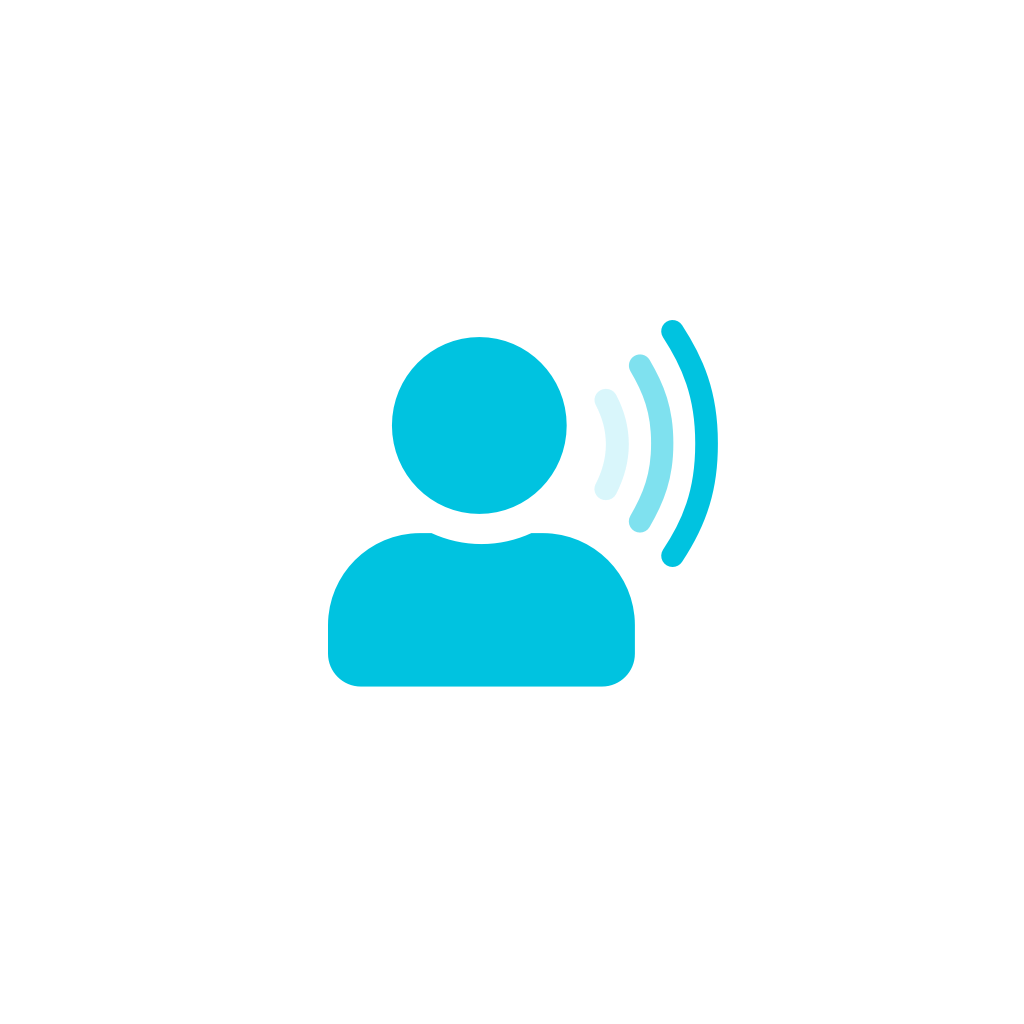Why assess cognitive ability?
Cognitive ability is the strongest predictor of job success for all employment levels across industries. It helps to gain an understanding of the candidate’s ability to learn, apply new knowledge, and solve problems. Using cognitive ability assessments leads to increased quality of hire and, in the end, improves your company’s bottom line.
The more complex the job, the more effective cognitive ability assessments are at predicting future on-the-job performance. Cognitive ability is an umbrella term for a multitude of aspects that make up General Mental Ability (GMA). A person’s GMA involves reasoning, problem-solving, planning, abstract thinking, complex idea comprehension, and learning from experience.
Assessing different aspects of cognitive ability enables you to get a holistic understanding of a person’s cognitive processes.
Assessing cognitive ability with Harver
The biggest limitation of traditional cognitive ability assessments is the tendency to demonstrate adverse impact. Harver’s Cognitive Ability Assessment is constructed following robust methodology and a focus to mitigate the effects of adverse impact
Cognitive ability in the way that it is assessed at Harver can also be referred to as general intelligence. It combines a person’s crystal intelligence (learned knowledge), fluid intelligence (ability to apply knowledge to novel situations), and speed and accuracy to allow a holistic understanding of a person’s cognitive abilities.
Harver’s Cognitive Ability Assessment consists of 5 subtests that measure a broad spectrum of cognitive skills within the general intelligence framework.
Some cognitive ability skills are more important for certain roles than others. Because of the modular set-up of the assessment, you can determine what you want to measure per role and vacancy and set up your cognitive ability testing accordingly.
Logical Reasoning
The Logical Reasoning assessment works as a predictor of success in jobs with complex problem-solving and decision-making characteristics. It measures the ability to recognize patterns, make visual comparisons, detect abnormalities and observe relevant details in figures.
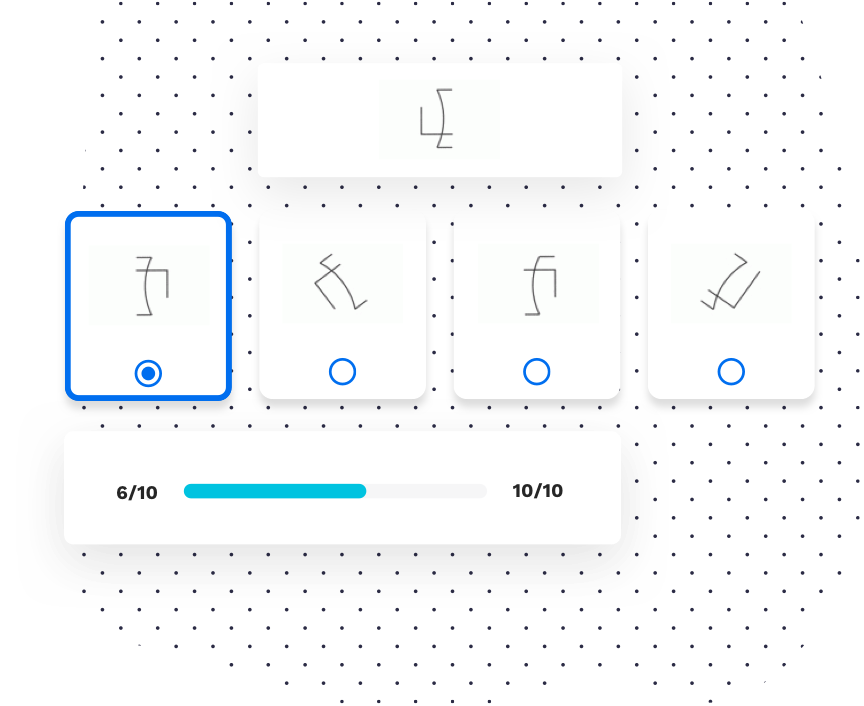
Verbal Reasoning
Harver’s Verbal Reasoning test has predictive value for activities involving verbal insight, abstract thinking and analytical problem-solving. This assessment measures the ability to discover connections or relationships between a number of verbal concepts.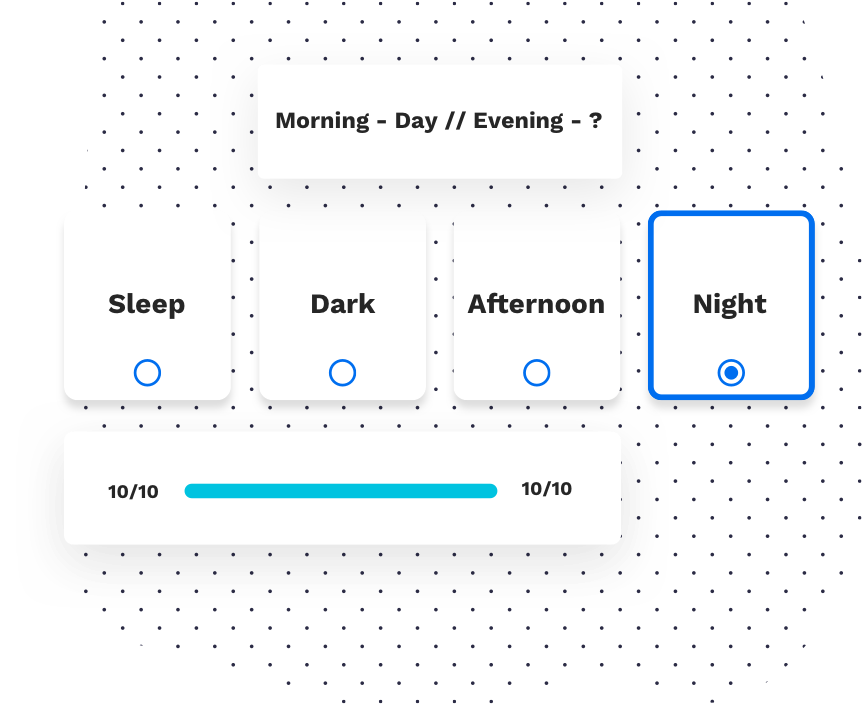
Perceptual Speed and Accuracy
The Perceptual Speed and Accuracy test acts as a predictor of success in jobs that require the ordering, sorting and verifying of information in any way. This measures how well candidates can work efficiently on relatively unknown tasks under pressure.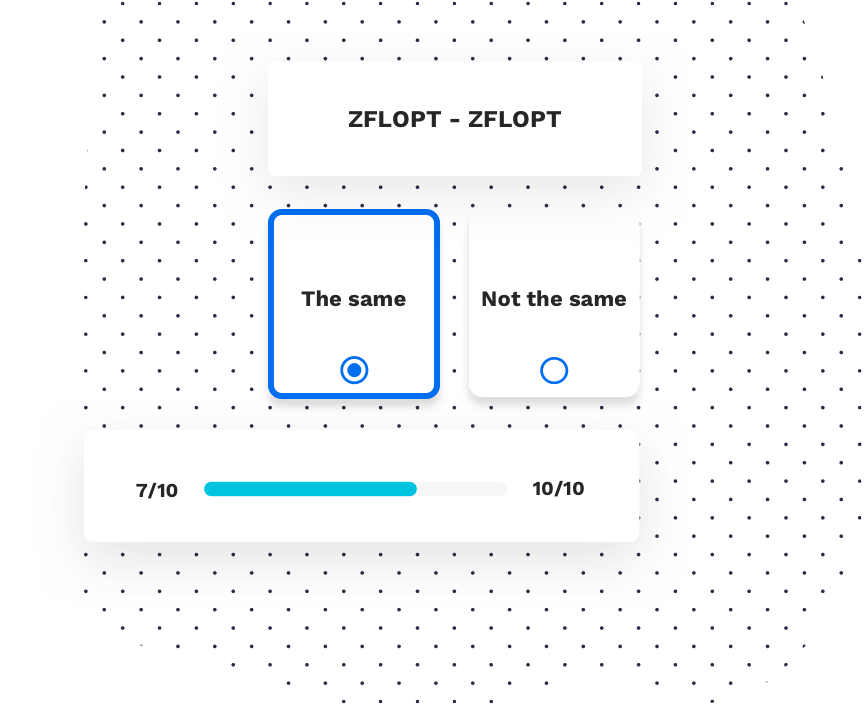
Numerical Reasoning
By evaluating the ability to discover and recognize systems in numerical sequences, the Numerical Reasoning assessment predicts performance for jobs that require numerical insight, abstract thinking and analytical problem-solving.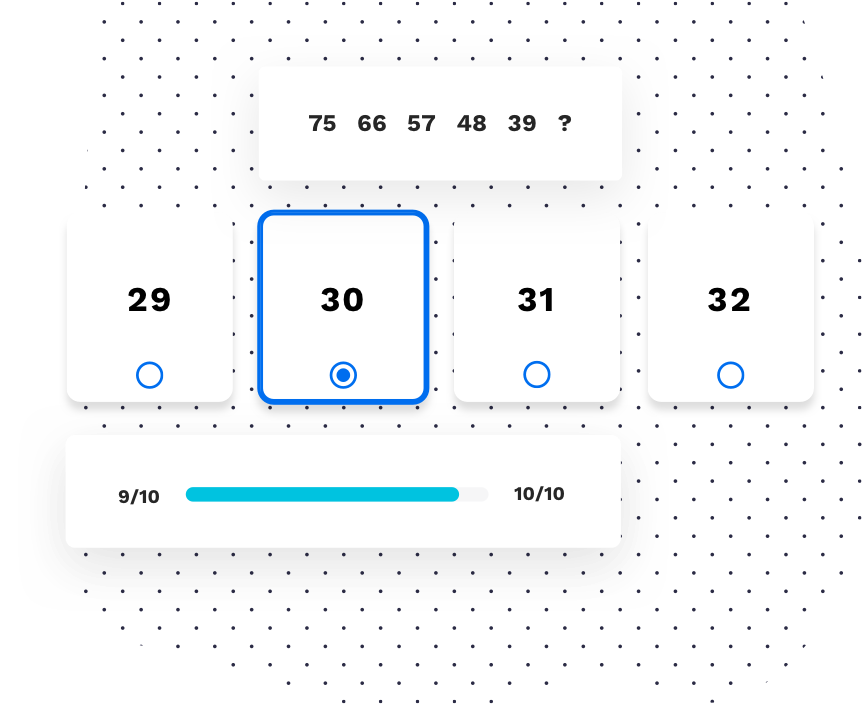
Spatial Ability
Spatial Ability assessment measures how well a candidate is able to visualize and manipulate shapes. This helps predict performance for jobs that require good spatial orientation. Spatial ability is also linked to strategic thinking because it reveals how individual parts make a whole and therefore enables seeing the bigger picture.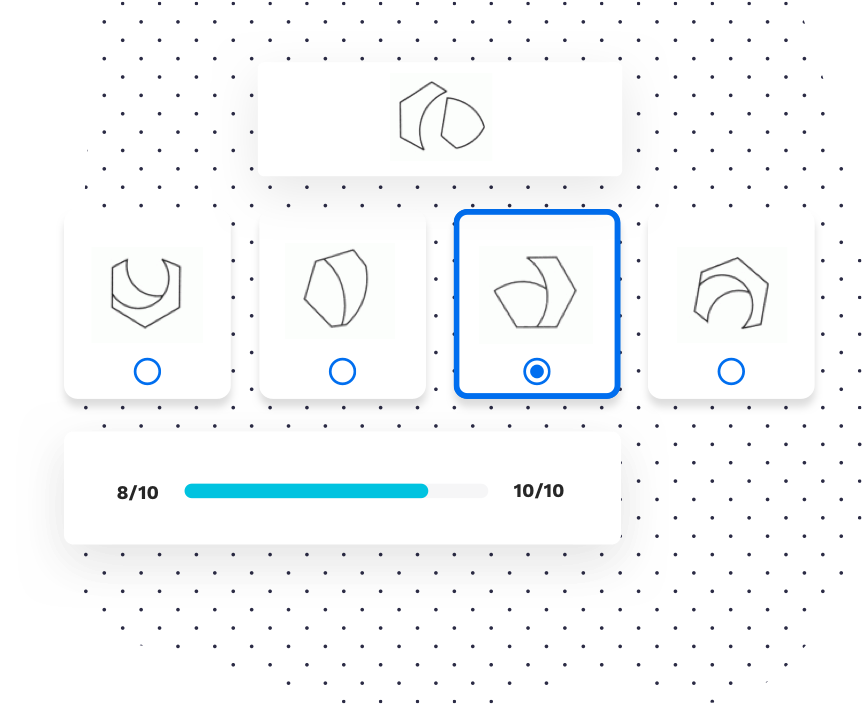
See our cognitive ability test in action.
Request a demo and see how cognitive ability testing can transform your selection process.
FAQ
To hire the most qualified candidates, employers need to know about more than past experience and key skills. Gaining an understanding of each person’s ability to learn and solve problems ensures that you hire applicants with higher cognitive abilities who are better able to learn and apply new knowledge they learn on the job.
By using cognitive ability testing to assess each applicant’s strengths and weaknesses, you can increase your quality of hire, save time in your recruitment process and improve productivity—all while boosting your company’s bottom line.
Cognitive ability assessments are a form of pre-employment testing that measure each applicant’s learning aptitude, problem-solving skills, critical thinking skills, working memory and more.
Using cognitive ability tests helps companies assess candidates and predict the likelihood of on-the-job success, that is, how well each candidate picks up on new learnings, adapts to new work environments, makes important decisions, identifies solutions to problems and more.
Beside candidate selection, cognitive ability assessments are applied in a number of different situations to identify things like intellectual disorders, learning disabilities, impact of brain injuries, and signs of dementia.
Harver’s cognitive ability assessments consist of multiple subtests, including numerical reasoning, verbal reasoning, logical reasoning, spatial ability, and working memory assessments.
Employers can customize tests by deciding which parts to include and which are not necessary to assess for the role in question. Tests are administered online and take candidates approximately 6 to 24 minutes per section to complete.
Studies have long shown that cognitive ability tests have better predictive validity than other employee selection tools, demonstrating a high correlation between test scores and predicted job performance.
However, it is best to include a cognitive ability test as part of a multi-measure test, such as a personality questionnaire, to achieve even better predictability.
Cognitive ability tests are highly reliable, providing consistent scores with each reexamination. Because they are high criterion-related tests, you can choose a predetermined set of criteria to ensure you’re measuring what you want to measure.
Assessments with strong levels of predictive validity simplify the selection process and improve the accuracy of results.
Many cognitive ability assessments demonstrate adverse impact. Harver’s cognitive ability test has been designed and tested to minimize potential bias.
Harver mitigates adverse impact by designing assessments that are light on language and created by working with a test group that includes people of diverse backgrounds. All instructions are as straightforward as possible, do not use unnecessarily difficult words or phrases and offer candidates opportunities to practice.
However, relying solely on cognitive ability assessments is unwarranted because they produce racial differences 3 to 5 times larger than other predictors of job performance. Cognitive ability assessments should be combined with other forms of testing like personality or situational judgement tests to reduce adverse impact and increase predictive validity.


